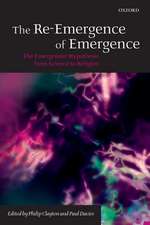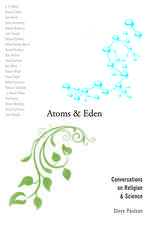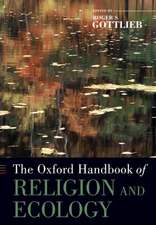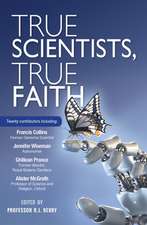Buddhist Biology: Ancient Eastern Wisdom Meets Modern Western Science
Autor David P. Barashen Limba Engleză Hardback – 19 dec 2013
| Toate formatele și edițiile | Preț | Express |
|---|---|---|
| Paperback (1) | 170.40 lei 43-57 zile | |
| Oxford University Press – 31 aug 2017 | 170.40 lei 43-57 zile | |
| Hardback (1) | 432.77 lei 43-57 zile | |
| Oxford University Press – 19 dec 2013 | 432.77 lei 43-57 zile |
Preț: 432.77 lei
Preț vechi: 534.28 lei
-19% Nou
Puncte Express: 649
Preț estimativ în valută:
82.84€ • 90.01$ • 69.63£
82.84€ • 90.01$ • 69.63£
Carte tipărită la comandă
Livrare economică 21 aprilie-05 mai
Preluare comenzi: 021 569.72.76
Specificații
ISBN-13: 9780199985562
ISBN-10: 0199985561
Pagini: 216
Dimensiuni: 163 x 236 x 22 mm
Greutate: 0.41 kg
Editura: Oxford University Press
Colecția OUP USA
Locul publicării:New York, United States
ISBN-10: 0199985561
Pagini: 216
Dimensiuni: 163 x 236 x 22 mm
Greutate: 0.41 kg
Editura: Oxford University Press
Colecția OUP USA
Locul publicării:New York, United States
Descriere
An eye-opening look at the crossroads of religion and science, illuminating the unexpected common ground shared by biology and Buddhism.Many high-profile public intellectuals-such as the well-known "New Atheists" Richard Dawkins, Daniel Dennett, and the late Christopher Hitchens-have argued that religion and science are highly antagonistic, two views of the world that are utterly incompatible. David Barish, a renowned biologist with thirty years of experience, largely agrees with them-with one very big exception. And that exception is Buddhism.In this fascinating book, David Barash highlights an intriguing patch of common ground between scientific and religious thought, illuminating the many parallels between biology and Buddhism, allowing readers to see both in a new way. Indeed, he shows that there are numerous places where the Buddhist and biological perspectives coincide. For instance, the cornerstone ecological concept—the interconnectedness and interdependence of all things—is remarkably similar to the fundamental insight ofBuddhism. Indeed, a major Buddhist text, the Avatamsaka Sutra-which consists of ten insights into the "interpenetration" between beings and their environment-could well have been written by a trained ecologist. Barash underscores other similarities, including a shared distrust of simplecause-and-effect analysis, a recognition of life as transient and as a "process" rather than permanent and static, and an appreciation of the "rightness" of nature along with a recognition of the suffering that results when natural processes are tampered with. After decades of removing predators to protect deer and elk herds, ecologists have belatedly come to a Buddhist realization that predation—and even forest fires—are natural processes that have an important place in maintaining healthyecosystems.Buddhist Biology sheds new light on biology, Buddhism, and the remarkable ways the two perspectives come together, like powerful searchlights that offer complementary and valuable perspectives on the world and our place in it.
Notă biografică
David P. Barash, PhD is Professor of Psychology at the University of Washington. An evolutionary biologist by training, he has been involved in the development of sociobiology, and is the author or co-author of 29 books.













